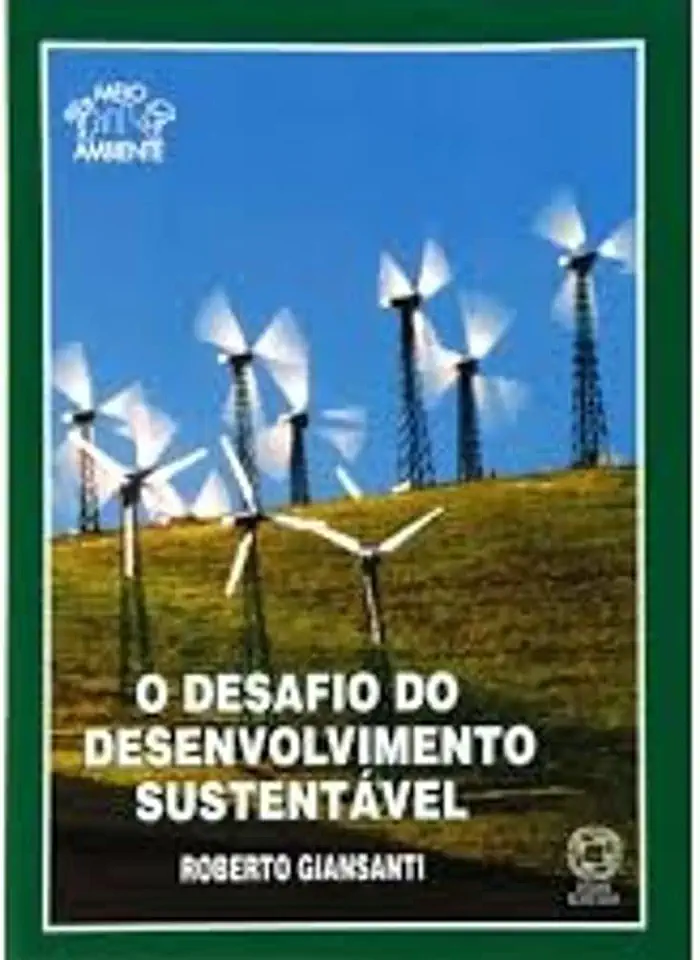
The Challenge of Sustainable Development - Roberto Giansanti
The Challenge of Sustainable Development: A Comprehensive Guide to Achieving a Sustainable Future
In today's world, the concept of sustainable development has become increasingly important. It refers to the idea of meeting the needs of the present without compromising the ability of future generations to meet their own needs. This comprehensive guide, written by Roberto Giansanti, provides a thorough exploration of the challenges and opportunities associated with achieving sustainable development.
Understanding Sustainable Development
The book begins by defining sustainable development and discussing its key principles. Giansanti emphasizes the importance of balancing economic growth, environmental protection, and social equity to achieve true sustainability. He also highlights the urgent need to address global issues such as climate change, poverty, and inequality, which pose significant threats to sustainable development.
Key Challenges to Sustainable Development
The book then delves into the specific challenges that hinder the achievement of sustainable development. These challenges include:
Climate Change: Giansanti discusses the scientific evidence for climate change and its potential impacts on ecosystems, human health, and economic systems. He emphasizes the need for urgent action to reduce greenhouse gas emissions and mitigate the effects of climate change.
Biodiversity Loss: The book highlights the alarming rate of biodiversity loss and its consequences for ecosystem functioning and human well-being. Giansanti stresses the importance of protecting and conserving biodiversity through effective conservation strategies and sustainable land use practices.
Poverty and Inequality: Giansanti examines the persistent problems of poverty and inequality, which are major obstacles to sustainable development. He argues for the need to address these issues through social policies that promote equitable distribution of resources and opportunities.
Resource Depletion: The book discusses the finite nature of natural resources and the challenges associated with their sustainable use. Giansanti emphasizes the importance of adopting circular economy principles, reducing waste, and promoting resource efficiency to ensure the long-term availability of resources.
Opportunities for Sustainable Development
Despite the challenges, the book also highlights the opportunities for achieving sustainable development. These opportunities include:
Renewable Energy: Giansanti explores the potential of renewable energy sources, such as solar, wind, and hydropower, to replace fossil fuels and reduce greenhouse gas emissions. He discusses the economic and environmental benefits of transitioning to a sustainable energy system.
Sustainable Agriculture: The book emphasizes the importance of sustainable agriculture practices, such as agroecology and organic farming, to reduce the environmental impact of food production and improve food security. Giansanti also highlights the role of local food systems in promoting sustainable development.
Circular Economy: Giansanti introduces the concept of the circular economy, which aims to minimize waste and maximize resource efficiency. He discusses the benefits of adopting circular economy principles in various industries, including manufacturing, construction, and fashion.
Education and Awareness: The book stresses the crucial role of education and awareness in promoting sustainable development. Giansanti emphasizes the need for educating individuals, communities, and businesses about the importance of sustainability and empowering them to take action.
Conclusion
"The Challenge of Sustainable Development" is a comprehensive and thought-provoking book that provides a deep understanding of the complex issues surrounding sustainable development. Giansanti offers a balanced perspective, acknowledging the challenges while also highlighting the opportunities for achieving a sustainable future. This book is a must-read for anyone interested in sustainability, environmental science, economics, or social development. It is a valuable resource for students, researchers, policymakers, and practitioners who are committed to creating a more sustainable world.